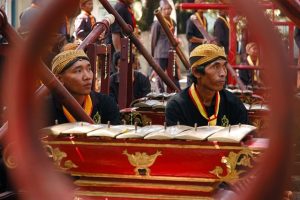A Brief Account of Indonesia’s Strong Opposition to Lottery and Gambling
 Cash lottery in Indonesia was banned several decades ago; but the availability of online lottery sites allows lottery enthusiasts to stay hopeful. Even if there’s only one in a million chance of winning the major prize money, the idea of having that chance can make people optimistic about their future. While the prohibition of lottery in Indonesia is often explained as a measure of addressing a potential and strong connection to the so-called games of chance in gambling.
Cash lottery in Indonesia was banned several decades ago; but the availability of online lottery sites allows lottery enthusiasts to stay hopeful. Even if there’s only one in a million chance of winning the major prize money, the idea of having that chance can make people optimistic about their future. While the prohibition of lottery in Indonesia is often explained as a measure of addressing a potential and strong connection to the so-called games of chance in gambling.
Ordinarily in most countries, the federal government is in control of a nation’s lottery institution. The purpose of which is to ensure that part of revenues collected as commission will go to charities and non-profit, non-government socio-civic projects. These entities administer the funding of charitable and socio-civic endeavours like educational scholarships, medical assistance and environment protection actions.
However, in a predominantly Muslim country like Indonesia, the will of the Indonesian Muslim devotees and eminent religious leaders prevailed over the Indonesian government’s addition of lottery proceeds as a source of revenue.
A Brief Background in the Rise and Fall of Lottery in Indonesia
The demise of the lottery or togel industry in Indonesia came around as a result of the massive riots that took place in 1974. Suharto, the second president of Indonesia was forced to issue a New Order, which introduced numerous reforms including the ban on lottery gaming in the country. The riots that took place in the country only proved that the government of Suharto did not have the ability to control the Indonesian people.
Apparently, the crisis and turmoil caused the revival of the Islamic religion as the safe and solidifying alternative solution to the riots. The growing concern among the millions of Indonesians brought together Muslims in both the urban and poor sectors, which forced the Suharto government to introduce new orders addressing the complaints of the majority of Indonesian Muslims.
 Complaints about government nepotism, collusion and abuse of authority, as Suharto’s administration favored foreign investors but whose local projects were awarded exclusively to military officers; or to the minority Chinese Muslims doing business in Indonesia.
Complaints about government nepotism, collusion and abuse of authority, as Suharto’s administration favored foreign investors but whose local projects were awarded exclusively to military officers; or to the minority Chinese Muslims doing business in Indonesia.
Suharto and his political allies were regarded as cultural or nominal Muslims who only identify as Muslims by birth but not religiously practising the doctrines of the Islamic faith. Yet their dominance of the country’s economy sowed deep resentment against the predominantly practising Muslim citizens of Indonesia.
While the first Indonesian president Soekarno had broken ties with the West, Suharto’s government restored the country’s alliance with major Western countries. The purpose of which was to secure foreign aid that Sukarno could use in wielding control over the people.
However, discussion of the complaints against the government and its lack of regard for Islamic laws, were taking place in mosques and incorporated in sermons. Religious leaders were careful not to speak out during demonstrations to avoid igniting sparks that will bring on more riots.
Finally, during the 1990s era, Suharto issued the set of New Orders that clearly established Islamic laws as the dominant rules and policies that must be observed by the people of the land.